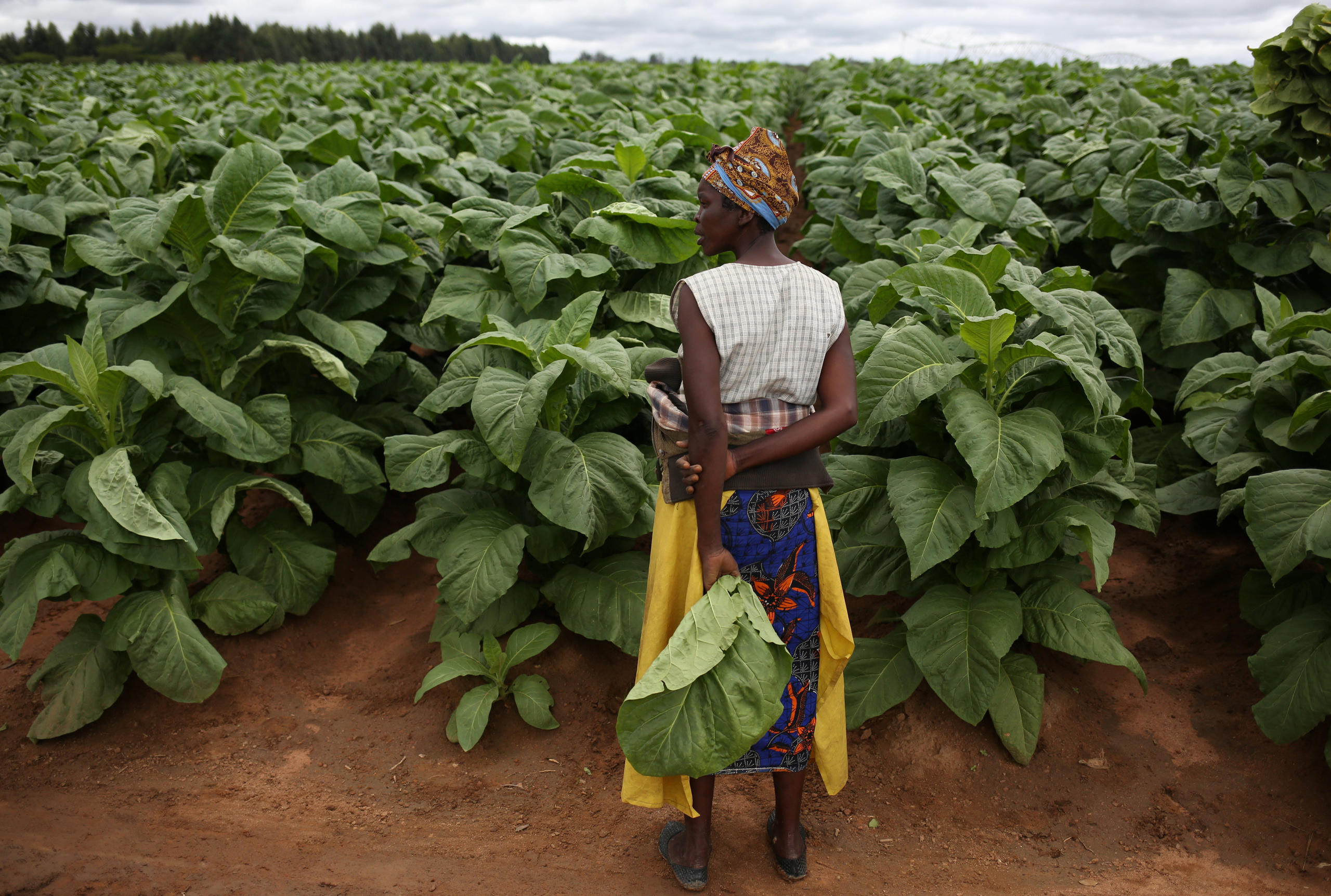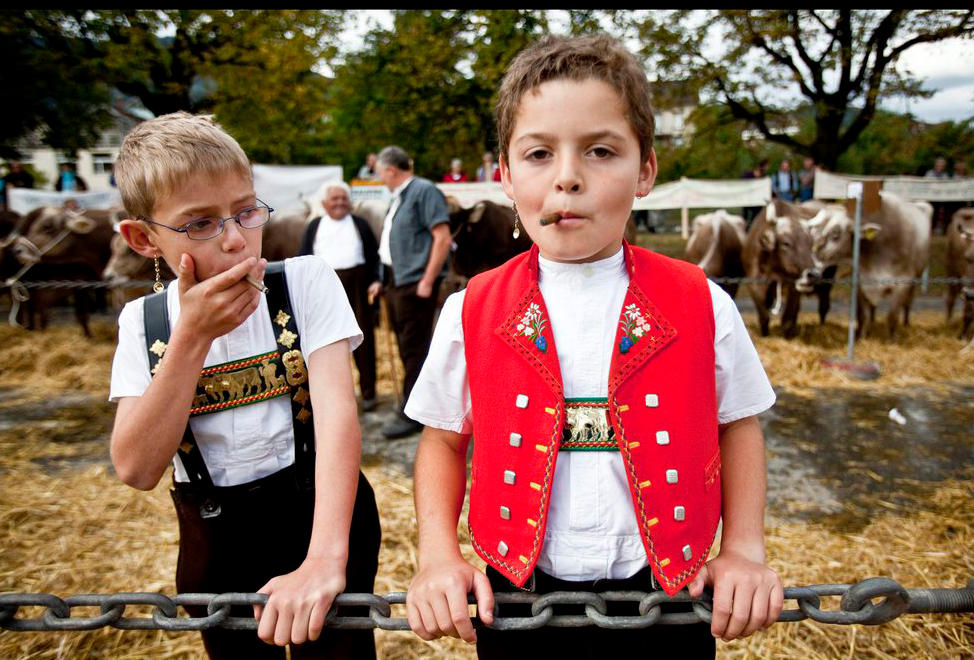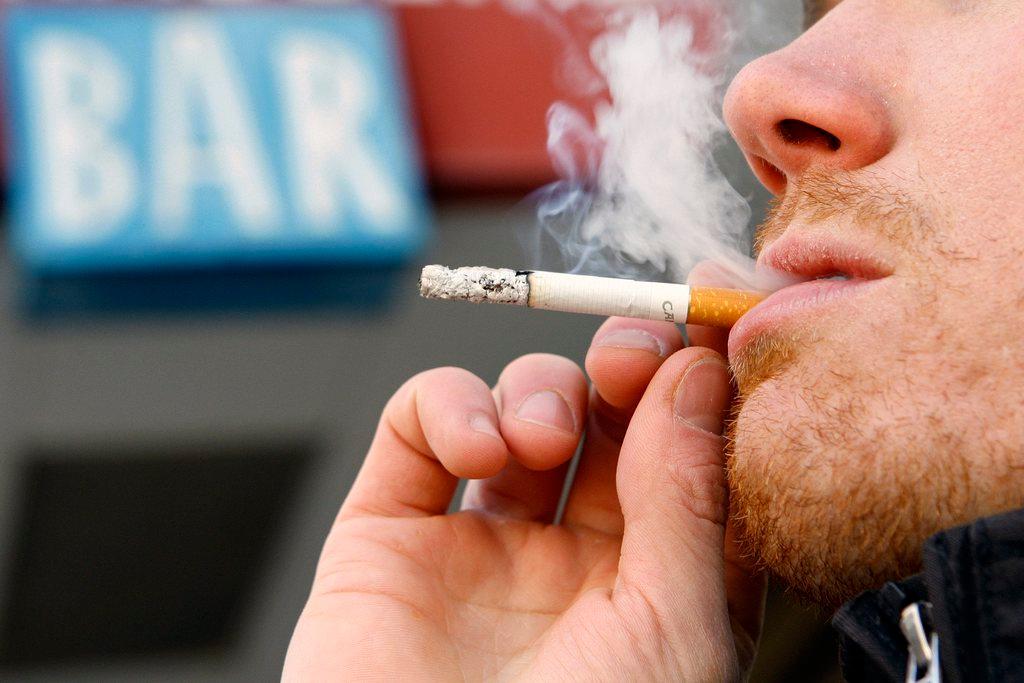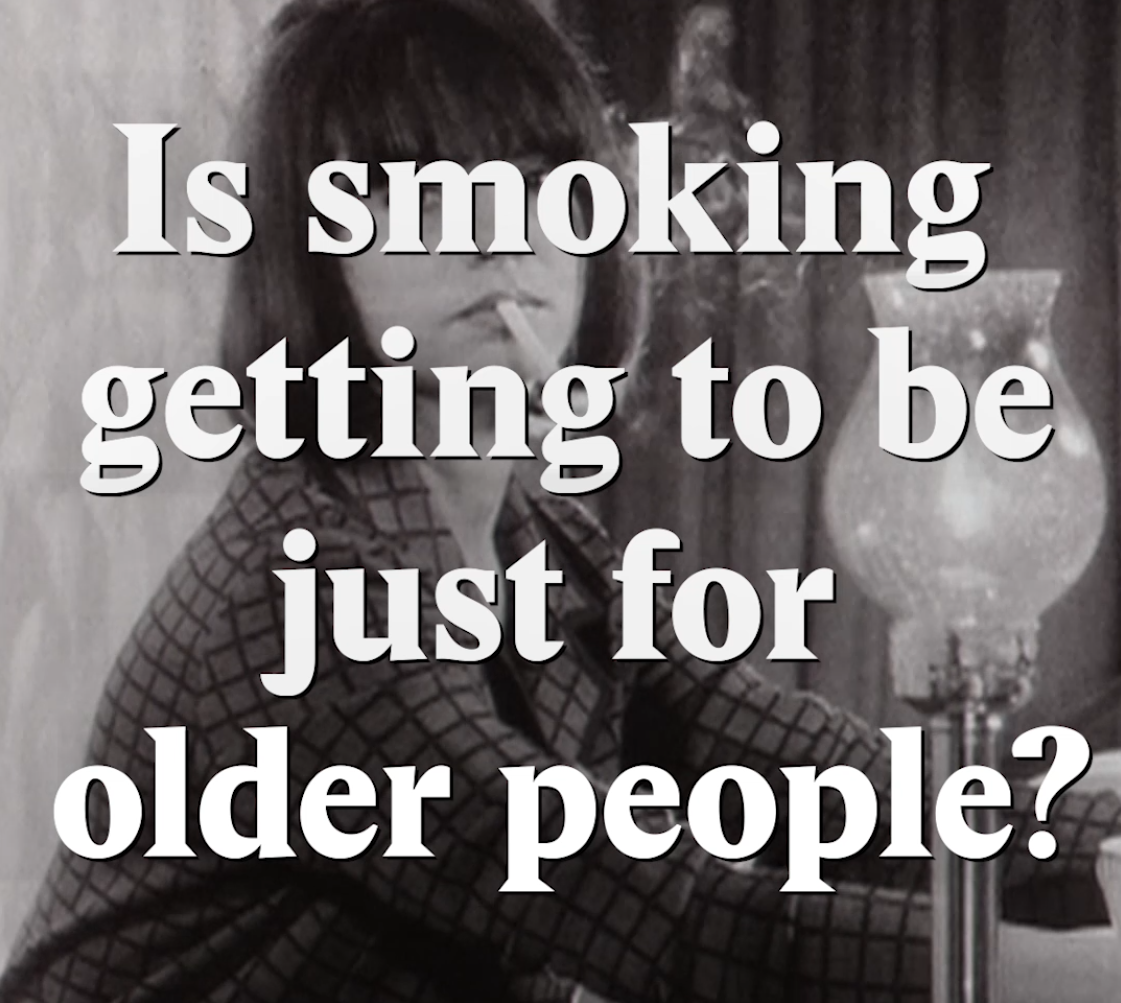Should the ILO maintain financial ties to the tobacco industry?

The Geneva-based International Labour Organization (ILO) is once again facing pressure to review its relationship with the tobacco industry. This week the United Nations agency is set to decide on its partnership deals aimed at ending child labour in tobacco-growing countries and on future engagement with the sector.
On Wednesday, ILO stakeholders – employers, workers and government representatives – are meeting in Geneva to decide on a proposal for an “integrated strategy to address decent work deficits in the tobacco sectorExternal link”..
The broad strategy proposed by the ILO secretariat is aimed at developing policy, strengthening dialogue with social partners, and helping tobacco-growing communities address problems such as child labour and the transition to alternative livelihoods.
But the wider issue to be decided is exactly how the UN agency should conduct business with the tobacco industry in the future, in particular with regards to accepting financial contributions.
The ILO currently has an ongoing partnership with Japan Tobacco International (JTI)External link for a $10-million (CHF10-million) project (2011-2018) and since 2002 has partnered with the industry-funded Eliminating Child Labour in Tobacco Growing Foundation (ECLT),External link receiving $5 million for a recent project. Both public-private partnerships (PPPs) seek to eliminate child labour and promote workers’ rights in tobacco-growing communities in Brazil, Malawi, Tanzania, Uganda and Zambia.
Consensus possible?
For tobacco-control activists hoping to see the ILO become the last UN agency to sever ties with the tobacco industry, Wednesday’s session is crucial; a similar decision was postponed three times in the past.
“I’m a bit more optimistic this time, as the contracts are expiring at the end of the year,” said Mischa Terzyk, Policy and Advocacy Officer at the Framework Convention AllianceExternal link.
“The ILO is the only UN agency still receiving that kind of money from the tobacco industry. I think the ILO secretariat realizes that they are quite an outlier in the UN system and they don’t like this. They are interested in a solution,” said Terzyk.
At earlier governing body meetings, consensus on this issue was impossible. African tobacco-growing countries, Asian nations, Brazil, Japan and the United States supported an employers’ proposal to maintain the close ILO relationship with big tobacco. They insist that the sector is a major source of income and employment for 60 million people worldwide. Opponents, meanwhile, include Canada, Uruguay and European states such as Ireland.

More
Switzerland: the land of the tobacco industry
Swiss scepticism
Valérie Berset Bircher, acting head of International Labour Affairs at Switzerland’s State Secretariat for Economic Affairs (SECO), said after ILO consultations with states involved in the PPPs – Zambia, Tanzania, Uganda and Malawi – that she was happier with the new future strategy document, which was broader and more substantial.
“The PPPs as they exist will end at the end of 2018. That’s quite clear,” she said. “The big worry for Switzerland is how to continue to have projects in this sector and to finance them. The current projects are extremely well managed by ILO teams and have shown progress and impact and are successful. Our concern is that they just stop. What’s the best way of allowing them to continue in a sustainable way with acceptable financing?”
But she was sceptical about the tripartite UN agency resolving the matter this week.
“Switzerland is open to the ILO solution proposed and compromise, but there are parties at the ILO at each extreme and it’s going to be hard to reach an agreement,” she said.
As a UN agency, the ILO finds itself in a tricky spot. The “UN model policy”, drafted by the UN Interagency Task Force on Noncommunicable Diseases (UNIATF),External link of which the ILO is a member, calls on all parts of the UN system to work together to have a consistent approach in preventing tobacco industry interference.
In 2017, the Economic and Social Council of the UN (ECOSOC) adopted a resolution urging agencies to adopt policies in line with the model. And although it is an observer and not a party to the WHO Framework Convention on Tobacco Control (FCTC)External link, this treaty has implications for the ILO, especially regarding accepting tobacco industry money.

More
A graphic look at global smoking trends
The latest proposal remains ambiguous on this question. The report states that it “would not be appropriate to renew the PPPs with the tobacco industry after they expire in 2018”. Yet at the same time, the document proposes a fund for agricultural development that would “allow the industry to financially support the implementation of the integrated strategy” – albeit via anonymous donations.
Child labour
The ILO estimatesExternal link that 152 million children are involved in child labour around the world. Of these, 108 million children (71%), are working in the agricultural sector, including tobacco growing.
All four of the big tobacco giants have their own corporate social responsibility schemes in tobacco-growing countries and say they are doing what they can, monitoring child labour and building wells or schools, for example. ECLT claims that since 2011, it has removed over 182,000 children from tobacco farms in Kyrgyzstan, Malawi, Mozambique, Tanzania and Uganda, and sent 27,000 to school and vocational training.
The JTI says from 2011-2017 its Achieving Reduction in Child Labour in Support of Education (ARISE) programme has withdrawn 39,000 children from the tobacco fields and put them in school. It says it has also helped 9,000 households improve their financial situations through schemes and loans and assisted with the creation of 48 government policies and plans to combat child labour in the tobacco industry.
Small impact
Campaigners, however, question the usefulness of such child labour projects.
“The industry figures on how many children it is helping are miniscule and there is no evidence that these children did not return to the fields to help their parents again,” said Mary Assunta, senior policy advisor for the Southeast Asia Tobacco Control AllianceExternal link.
Activists say they can essentially live with the ILO’s new strategy, which seeks to build a coalition of development partners, but any backdoor funding by the tobacco industry would be unacceptable. At the same time, they insist that any integrated approach should go beyond a narrow focus on child labour to include broader issues such as fairer contracts for tobacco growers and better prices for tobacco leaves.
Marty OtañezExternal link, an associate professor at the University of Colorado in Denver, who has studied tobacco growing in Malawi, Bolivia, Argentina, Tanzania, India and Kenya, concurred.
“If ECLT and its key sponsors, such as global cigarette makers and international leaf buyers, cared about adults and children in tobacco fields, they would promote living earnings, make labour contracts visible to the public, allow independent – not paid by the tobacco industry – third-party monitors to visit tobacco farms, and end tobacco industry interference in workers’ campaigns to form trade unions,” he declared.

In compliance with the JTI standards
More: SWI swissinfo.ch certified by the Journalism Trust Initiative



You can find an overview of ongoing debates with our journalists here . Please join us!
If you want to start a conversation about a topic raised in this article or want to report factual errors, email us at english@swissinfo.ch.